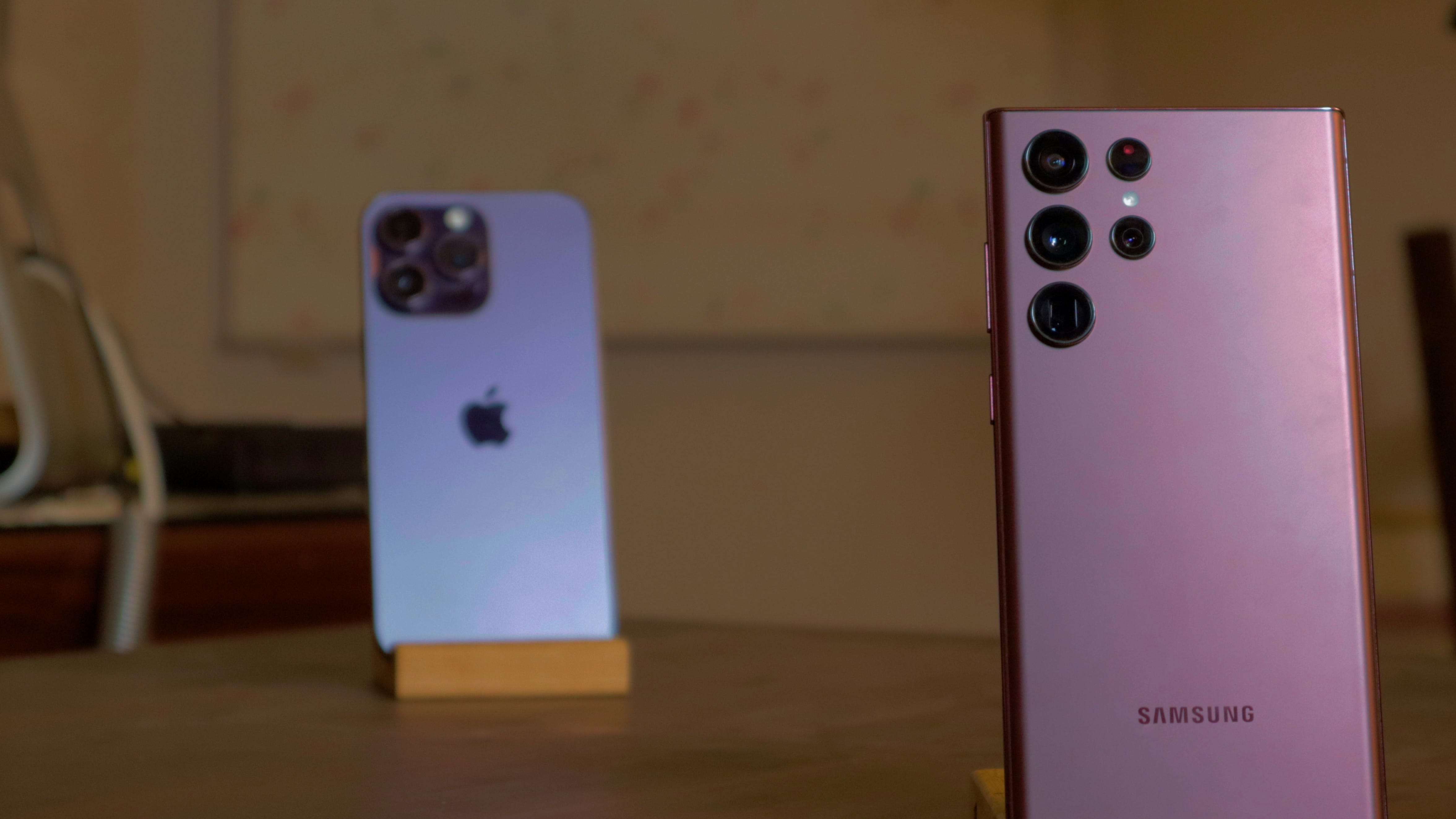There is no debate more toxic, vicious, and inconsequential than iOS vs. Android. It’s stupid, with blame to go around on both sides of the aisle. I’ll never affirmingly take one side of the argument.
To even have a civil and fact-based conversation about the two, we must first define Android and iOS. Android is an OS that runs on dozens of smartphones from different manufacturers. Device makers pile their own skin or user interface onto Android, offering additional features and designs. iOS, on the other hand, is an entire experience single-handedly controlled by one entity. Comparing the two is not apples to apples.
I consider Samsung’s flagship Galaxy devices the pinnacle of the Android smartphone pyramid. Google’s Pixel, while very impressive, as I outlined in my review of the Pixel 6 Pro, still has some catch-up.
As much as I love my iPhone, Apple Watch, and AirPods as my daily drivers, they are increasingly inhibiting. Apple has this philosophy that it rather have the best implementation of a specific feature, rather than be the first to ship it out. “Be the best, not the first.”
For the most part, it’s a mindset that makes sense. By shipping out technologies and features the company thinks are ready to be mass adopted, the iPhone/Apple experience remains premium, easy to use, and a delight to use. On the other hand, this obsession with perfection means Apple customers often have to wait years for a feature Galaxy owners have used since ancient times (always-on display, 120Hz, Apple Pencil Hover and the SPen, etc.).
I find myself at a crossroads between those two philosophies. On the one hand, I want my devices to be fully functional, with features that make sense and careful attention to detail that typically only comes after years of obsessive work. On the other hand, I want to utilize the most advanced and high-end technologies, especially if I’m cashing out $$$ for a phone. In Apple’s eyes, those two paths can’t merge.
The latter option does not mean that Android or Galaxy devices have half-baked features. Not at all. But take a specific example like the always-on display. Flagship Galaxy and Android devices have had it for years, with iPhone users only getting it months ago. Looking at the specific implementation of the always-on display, you’ll find one device implemented it more logically.
The always-on display on my iPhone turns off when I’m wearing my Apple Watch and leave the room and my phone behind. Makes sense? Why leave it on if you’re not in the room to see it? Or when I’m sleeping, it turns off. Nothing happens when I wear my Galaxy Watch and leave the room with my S22 Ultra behind.
It’s a small example, but I think it shows that sometimes, just sometimes, Apple’s patience and careful implementation of features is worth the while. I hope that’s something both Android fans and iPhone lovers can agree on.
Having said all of that, I’m switching to Android.
As much as I love my iPhone, I agree it’s limiting, and I’m ready to try something new. The Galaxy Buds Pro 2, Galaxy Watch, and Galaxy S22 Ultra will be my daily driver for the foreseeable future.
There are some complications, though. Apple’s stubborn refusal to keep iMessage off Android means I’ll have to use a third-party app that bridges one of my Macs to my Galaxy device. Apple Pay will also be something I’ll miss. And finally, Sign in with Apple. I use it for almost every app I have, and now I’ll have to begin the painstaking work of logging into those apps on my Galaxy using long and complicated passwords.
I’ll have plenty to share about my experience as I move my digital world to my Galaxy device here in my newsletter and on Twitter. Please let me know if you have any questions about the switchover or the Galaxy S22 Ultra/Android.





Moving from one ecosystem to another is not that easy or straightforward. Also looking forward to see what you feel after a month after switching
Interesting. I would try switching but I simply cannot leave because of the integration with my M1 air.